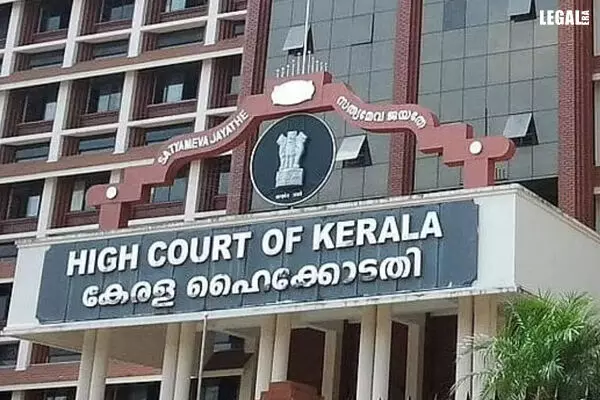- Home
- News
- Articles+
- Aerospace
- AI
- Agriculture
- Alternate Dispute Resolution
- Arbitration & Mediation
- Banking and Finance
- Bankruptcy
- Book Review
- Bribery & Corruption
- Commercial Litigation
- Competition Law
- Conference Reports
- Consumer Products
- Contract
- Corporate Governance
- Corporate Law
- Covid-19
- Cryptocurrency
- Cybersecurity
- Data Protection
- Defence
- Digital Economy
- E-commerce
- Employment Law
- Energy and Natural Resources
- Entertainment and Sports Law
- Environmental Law
- ESG
- FDI
- Food and Beverage
- Gaming
- Health Care
- IBC Diaries
- In Focus
- Inclusion & Diversity
- Insurance Law
- Intellectual Property
- International Law
- IP & Tech Era
- Know the Law
- Labour Laws
- Law & Policy and Regulation
- Litigation
- Litigation Funding
- Manufacturing
- Mergers & Acquisitions
- NFTs
- Privacy
- Private Equity
- Project Finance
- Real Estate
- Risk and Compliance
- Student Corner
- Take On Board
- Tax
- Technology Media and Telecom
- Tributes
- Viewpoint
- Zoom In
- Law Firms
- In-House
- Rankings
- E-Magazine
- Legal Era TV
- Events
- News
- Articles
- Aerospace
- AI
- Agriculture
- Alternate Dispute Resolution
- Arbitration & Mediation
- Banking and Finance
- Bankruptcy
- Book Review
- Bribery & Corruption
- Commercial Litigation
- Competition Law
- Conference Reports
- Consumer Products
- Contract
- Corporate Governance
- Corporate Law
- Covid-19
- Cryptocurrency
- Cybersecurity
- Data Protection
- Defence
- Digital Economy
- E-commerce
- Employment Law
- Energy and Natural Resources
- Entertainment and Sports Law
- Environmental Law
- ESG
- FDI
- Food and Beverage
- Gaming
- Health Care
- IBC Diaries
- In Focus
- Inclusion & Diversity
- Insurance Law
- Intellectual Property
- International Law
- IP & Tech Era
- Know the Law
- Labour Laws
- Law & Policy and Regulation
- Litigation
- Litigation Funding
- Manufacturing
- Mergers & Acquisitions
- NFTs
- Privacy
- Private Equity
- Project Finance
- Real Estate
- Risk and Compliance
- Student Corner
- Take On Board
- Tax
- Technology Media and Telecom
- Tributes
- Viewpoint
- Zoom In
- Law Firms
- In-House
- Rankings
- E-Magazine
- Legal Era TV
- Events
Kerala High Court: Payment of Gratuity Cannot be Paid under Kerala Service Rules with Ceiling Limit Payable under Payment of Gratuity Act, 1972

Kerala High Court: Payment of Gratuity Cannot be Paid under Kerala Service Rules with Ceiling Limit Payable under Payment of Gratuity Act, 1972
The Kerala High Court has clarified that claim of payment of gratuity can either be done under the Payment of Gratuity Act, 1972 or under the Kerala Service Rules (KSR). A person cannot have gratuity under the KSR with the ceiling limit payable under the Payment of Gratuity Act, 1972 and vice versa.
The single judge Justice Murali Purushothaman while dismissing the petitioner’s claim observed that, the maximum amount of gratuity payable under the Payment of Gratuity Act, 1972 must be calculated from the date on which gratuity became payable and not on the date the amount was actually disbursed.
A plea was filed by a retired Regional Engineer from the Kerala State Housing Board whose Death-cum-Retirement Gratuity (DCRG) and last month pay was withheld due to audit objections.
The Petitioner had retired in the year 2002. He had earlier approached the Court and the Secretary of the Board was directed to disburse the withheld amounts.
However, according to the petitioner, in light of the 2010 Amendment to the Payment of Gratuity Act, 1972 under Section 4(3) he pleaded that he was entitled to a maximum gratuity of Rupees Ten Lakhs.
By noting the facts and submissions of the case, the Court held that the Petitioner was governed by the Kerala State Housing Board Employees' (Pension and other Retirement Benefits) Regulations, 1990.
According to Regulation 4, Rule 68 of Part III of the KSR deals with the amount of gratuity payable to an employee.
However, Section 14 of the Act states that the provisions of the Payment of Gratuity Act will override other enactments.
“No doubt, the petitioner is an employee coming within the ambit of section 2(e) of the Payment of Gratuity Act, 1972. Though he is governed by the provisions of the Kerala Service Rules, section 14 of the Payment of Gratuity Act, 1972 provides that the provisions of the Payment of Gratuity Act and the rules made thereunder shall have overriding effect on other enactments,” observed the Court.
The Court noted that the Government of Kerala has not exempted the Board from the operation of the provisions of the Payment of Gratuity Act, 1972 invoking its powers under section 5 of the Act.
In view of the overriding provisions contained in section 4(3) of the Payment of Gratuity Act, 1972, the employees of the Board can claim gratuity in terms of section 4(3) thereof, however, in such circumstances, they cannot claim gratuity available under the KSR, opined the judge.
Therefore, the Court held that the petitioner could either claim gratuity either under the Payment of Gratuity Act, 1972 or under the KSR.
Hence, the Court was of the considered view that there was no merit in the contention of the petitioner that he is entitled to the maximum gratuity of Rs.10,00,000/- as per section 4(3) of the Payment of Gratuity Act, 1972, as amended by Act 15 of 2010 and dismissed the petition.



